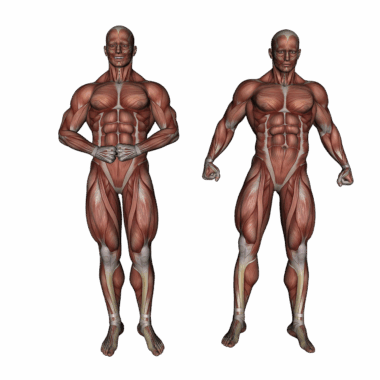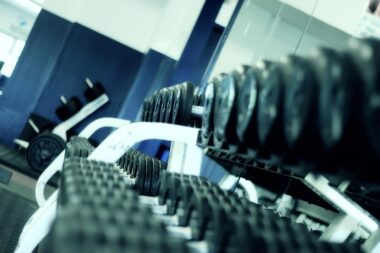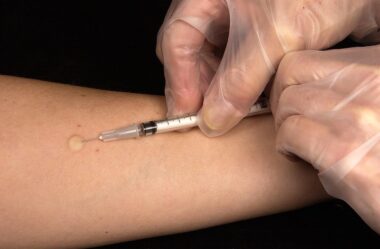How Aging Affects the Endocrine System and Fitness Capabilities
The endocrine system plays an integral role in regulating various physiological processes, including metabolism, growth, and mood. As we age, hormonal fluctuations become more pronounced, impacting not just our health but also our fitness capabilities. The key glands involved are the pituitary, thyroid, adrenal, and pancreas. These glands produce hormones that influence muscle mass, fat distribution, and energy levels. With aging, hormone secretion often diminishes, leading to metabolic slowdowns. Studies suggest that understanding these changes is critical for maintaining physical fitness and overall wellness. Furthermore, age-related hormonal changes can contribute to issues such as decreased bone density and cardiovascular health. It is essential to explore these connections and understand their implications on exercise routines. Regular physical activity becomes crucial as adults age, as it helps offset hormonal declines, particularly in testosterone and estrogen levels. Engaging in resistance training is particularly beneficial since it can help maintain muscle mass and strength. Additionally, being mindful of nutrition can further support hormonal balance. This holistic approach ensures that older adults can continue to engage in fitness activities effectively and meaningfully.
The aging process significantly influences hormonal health and subsequently affects fitness levels. One of the most critical hormones in this regard is testosterone, especially in men. As individuals reach their middle ages, testosterone levels typically start to decline. This reduction can lead to various issues, including decreased muscle mass, strength, and endurance. In women, estrogen decline during menopause can similarly impair muscle tone and bone density. These changes underscore the importance of incorporating strength training into fitness routines. Regular exercise not only helps combat the effects of hormonal aging but can also ameliorate mood swings caused by hormonal imbalances. Exercise boosts the production of endorphins, contributing positively to mental wellbeing. Moreover, cardiovascular health is paramount in aging individuals, and proper exercise can promote better heart function and circulation. Engaging in aerobic activities can further enhance overall fitness levels, reducing the risk of diseases like diabetes. Additionally, older adults should consider flexibility and balance exercises to prevent falls and improve coordination. Thus, recognizing the interplay between aging hormones and fitness is vital for crafting tailored health interventions to support optimal physical health for aging adults.
Aging can also affect the adrenal glands, which produce hormones like cortisol. Elevated cortisol levels, often related to chronic stress, can lead to weight gain, especially around the abdomen. This is particularly concerning as excess abdominal fat is a risk factor for metabolic syndrome and cardiovascular disease. Therefore, managing stress through techniques such as mindfulness, yoga, or meditation becomes essential for maintaining hormonal balance and overall fitness. Chronic stress reduction can significantly enhance the quality of life for aging individuals. Coupled with proper nutrition, these lifestyle changes can counteract hormonal fluctuations. Adequate sleep is another crucial factor in age-related hormonal health. Sleep deprivation can lead to imbalances in hormones such as ghrelin and leptin, which regulate appetite. A consistent sleep schedule and incorporating relaxation techniques can contribute to better sleep quality. Thus, focusing on managing these various lifestyle factors will help support a balanced endocrine system and enhance fitness capabilities. In essence, a multi-faceted approach is necessary for achieving optimal health in older adults. Engaging in regular exercise, maintaining a balanced diet, and being mindful of hormonal health can lead to improved quality of life.
The thyroid gland is another critical player in how aging affects hormonal health and fitness. Thyroid hormones regulate metabolism and energy levels, and an underactive thyroid can lead to fatigue, weight gain, and muscle weakness. As individuals age, the risk of developing thyroid issues increases, particularly in women. Thyroid disorders can significantly impair one’s ability to engage in physical activity, making it essential to recognize symptoms associated with these conditions. Regular screening and monitoring of thyroid hormone levels can facilitate early detection and management. Hormonal therapy options exist for those diagnosed with thyroid issues, allowing individuals to regain energy levels and improve metabolic rates. Furthermore, adopting a diet rich in nutrients that support thyroid function, such as iodine and selenium, is beneficial. This dietary strategy can ensure thyroid hormones are produced efficiently, enhancing overall fitness abilities. Moreover, routine physical activity can benefit the thyroid by improving its functionality. Engaging in exercise boosts metabolism, countering the effects of a sluggish thyroid. Thus, understanding the relationship between aging, hormonal balance, and fitness is vital for older individuals seeking to maintain their health and vitality.
Promoting Hormonal Health Through Lifestyle Changes
Aside from exercise and dietary modifications, lifestyle changes can significantly promote hormonal health in aging adults. Regular physical activity can mitigate the adverse effects of hormonal aging. Combining resistance training, aerobic workouts, and flexibility exercises creates a comprehensive fitness approach. Furthermore, a balanced diet rich in whole foods can support hormonal balance. Nutrient-dense foods provide essential vitamins and minerals that help maintain optimal hormone production. Incorporating healthy fats, lean proteins, and complex carbohydrates into daily meals is advisable. Staying hydrated is equally important since water is crucial in metabolic processes. Furthermore, moderation in alcohol consumption can prevent hormonal disruptions. Smoking cessation also plays a vital role in preventing further hormone imbalance. Social engagement and maintaining meaningful relationships are essential to emotional wellbeing. Participating in community activities or pursuing hobbies can fulfill psychological needs, enhancing overall life satisfaction. Adopting a positive mindset also aids in coping with aging and hormonal changes. Mindfulness practices can reduce stress and its physiological effect on hormones, thus creating a better hormonal environment for physical health. Small but consistent lifestyle changes can yield significant long-term benefits for maintaining hormonal health and fitness capabilities in older adults.
Nutritional strategies are paramount in managing hormonal imbalances linked to aging. Emphasizing anti-inflammatory foods can help combat the negative effects of chronic inflammation associated with age. Foods high in omega-3 fatty acids, such as fish and walnuts, provide anti-inflammatory properties vital for hormonal balance. Incorporating a variety of colorful fruits and vegetables ensures an adequate intake of antioxidants, which play a role in mitigating oxidative stress. Whole grains and legumes are also essential as they provide sustained energy and essential nutrients that support hormonal health. Iron-rich foods mitigate fatigue associated with aging and hormonal exertions, while calcium and vitamin D are crucial for maintaining bone health. Healthy snack choices, such as nuts or yogurt, can help regulate blood glucose levels, avoiding spikes that may affect insulin production. Additionally, understanding insulin sensitivity as we age is vital, promoting regular small meals that help regulate blood sugar levels. Lastly, focusing on meal preparation and planning contributes to ensuring that older adults meet their nutritional requirements. Implementing such nutritional strategies facilitates hormonal equilibrium, encouraging both physical activity and improved overall well-being among the aging population.
The Future of Hormonal Health and Fitness Research
Research into hormonal health and fitness is rapidly evolving, offering promising avenues to enhance quality of life for older adults. Ongoing scientific studies continue to uncover the intricate relationship between aging, hormone changes, and fitness capabilities. Understanding the genetic factors influencing hormonal responses can pave the way for personalized fitness programs tailored to individual needs. As technology advances, wearable fitness trackers and apps can provide real-time data on exercise performance and metabolic health. This enables older adults to monitor their progress and adjust their routines effectively. Furthermore, exploring the link between gut health and hormonal balance highlights the potential of probiotics and dietary adjustments. This intersection of hormonal health and gut microbiota emphasizes the importance of holistic health approaches. Research on hormone replacement therapies also warrants attention as options for managing age-related hormonal decline. Collaboration among healthcare professionals, researchers, and fitness experts is essential for developing integrative approaches to support hormonal health. As awareness grows, older adults can be empowered to take control of their hormonal well-being, allowing them to achieve optimal fitness levels, enhancing both their physical and mental health.
In conclusion, understanding how aging impacts the endocrine system and fitness capabilities is vital as it shapes our health journey. Awareness of hormonal changes enables individuals to adopt preventive measures through exercise, proper nutrition, and lifestyle modifications. Addressing hormonal health comprehensively improves not only physical fitness but also mental and emotional wellbeing. Older adults must embrace the significance of managing their hormonal health actively. Continued engagement in physical activity demonstrates its positive influence on hormonal balance. In doing so, they offer themselves the chance to maintain their independence, vitality, and overall quality of life. Furthermore, examining the multifaceted interactions between hormones and fitness emphasizes the need for a proactive approach. Integrating regular health screenings, engaging in community support programs, and seeking professional advice can all enhance hormonal health. Building a supportive network is crucial as this provides accountability and motivation for timely action. By fostering education about these issues, the aging population can cultivate greater resilience against the physical challenges of aging. Thus, the interplay between aging, hormonal health, and fitness illustrates an ongoing journey that requires commitment, adaptability, and informed choices to achieve sustained health outcomes.





